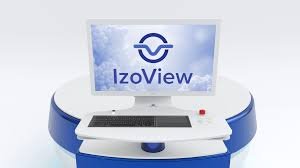
Izotropic Corporation, a medical device company commercialising innovative, emerging technologies and imaging-based products for the more accurate screening, diagnoses, and treatment of breast cancers, announced the issuance of the only U.S. patent for computer-aided diagnosis with breast CT, covered by the Company’s exclusive global license agreement to breast CT technology with the Regents of the University of California.
Computer-aided diagnosis (CADx) is an AI software-based tool used in radiology to support physicians in interpreting medical images by analysing them to estimate the likelihood of malignancy. In breast imaging, CADx has become an area of focus to address the limitations of various imaging modalities, improve diagnostic performance, and support radiologists in making faster, more confident decisions. For example, mammography, digital breast tomosynthesis (DBT), and ultrasound can miss cancers due to overlapping tissue, breast density, or operator variability. CADx is being developed to address these limitations by flagging subtle abnormalities that may be missed during initial review. These systems aim to improve cancer detection in cases where the imaging modality itself may not fully visualise an abnormality. In MRI, CADx can play a different but equally important role. MRI, like breast CT, produces larger volumes of detailed imaging data that therefore take more time to interpret. CADx is being increasingly used to support radiologists by triaging exams, highlighting abnormal regions, and reducing read times to improve overall efficiency. In all applications, CADx is being developed to support more consistent interpretation, reduce diagnostic uncertainty, and streamline clinical workflows.
Izotropic’s flagship device, the IzoView Breast CT Imaging System, is being commercialised as a powerful, true 3D breast-dedicated imaging alternative that bridges the gap between DBT and MRI, with an initial Indication for Use with contrast-enhancement for adjunctive breast cancer screening in asymptomatic patients with dense breast tissue.
While IzoView will not initially launch with a CADx feature, it will go-to-market with the integration of a trade-secret machine-learning image reconstruction algorithm developed for real-world clinical workflows that optimises IzoView’s images by addressing CT imaging noise while overcoming the limitations of existing methods, and maintaining low radiation doses comparable to 2-view mammography.
The Company plans to integrate CADx into IzoView as a post-market feature, available via software upgrade after additional market authorisations. The feature may be offered as an incentive to early adopters, supporting clinical value while contributing to future software-based revenue opportunities.